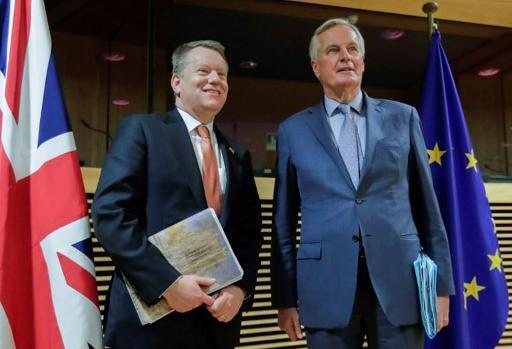Negotiations between the United Kingdom and the European Union to find an agreement on their post-Brexit relationship resumed on Tuesday evening.
The UK left the EU on 31 January but remains a member of the customs union and the internal market until the end of a transition period on 31 December. During this period, both sides have been negotiating new trade relations.
Chief Brexit negotiators Michel Barnier and David Frost met in Brussels for dinner on Tuesday after a previous unsuccessful session. The negotiating teams are meeting again on Wednesday in Brussels for a seventh session which will end on Friday, after a previous session without any real progress in London at the end of July.
Related News
- UK and Japan push to wrap up post-Brexit trade agreement
- Post-Brexit trade deal 'unlikely' at this stage, EU negotiator says
The EU wants “an ambitious and fair partnership with the UK,” a Commission spokesman said again on Tuesday, stressing the need for an agreement by October at the latest.
An agreement will still have to be ratified by the UK and EU parliaments before the end of the transition period.
Slowed down by the coronavirus pandemic while accelerated after the end of confinement measures, negotiations are still stalled on several issues, including fair conditions of competition (relating to such issues as environmental and social standards and state aid) and fisheries, the hottest topics.
The EU refuses to see a deregulated economy on its doorstep before concluding a duty-free, quota-free free trade agreement with London. As for the United Kingdom, it notably wants to regain control of its fish waters and limit access to them to European fishermen.
“This week and over the coming weeks we will remain constructive, we will remain engaged and respectful with the UK negotiating team in order to reach a deal,” the Commission spokesperson said.
In the absence of an agreement by 31 December, the rules of the World Trade Organisation (WTO), with their high tariffs and extensive customs controls, would apply to trade relations between the EU and the UK, which would weaken economies already hard hit by the pandemic.
The Brussels Times

